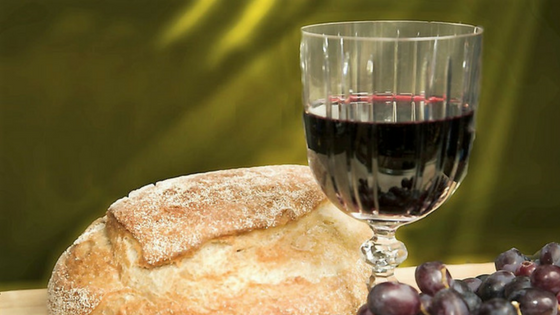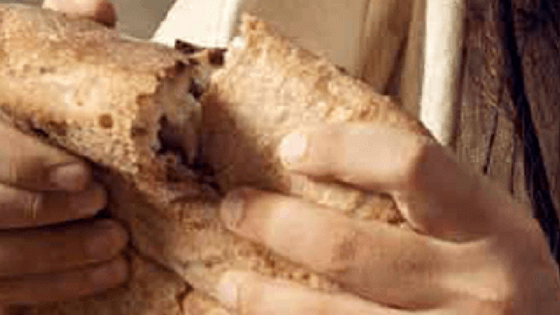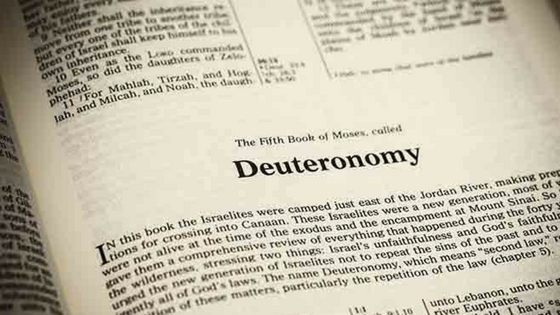@import url(https://www.ratisbonne.org.il/bk/wp-content/plugins/siteorigin-panels/css/front-flex.min.css); #pgc-4069-0-0 , #pgc-4069-0-2 { width:10%;width:calc(10% – ( 0.9 * 30px ) ) } #pgc-4069-0-1 { width:80%;width:calc(80% – ( 0.2 * 30px ) ) } #pl-4069 #panel-4069-0-1-0 { } #pl-4069 .so-panel { margin-bottom:30px } #pl-4069 .so-panel:last-child { margin-bottom:0px } #pg-4069-0.panel-no-style, #pg-4069-0.panel-has-style > .panel-row-style { -webkit-align-items:flex-start;align-items:flex-start } @media (max-width:780px){ #pg-4069-0.panel-no-style, #pg-4069-0.panel-has-style > .panel-row-style { -webkit-flex-direction:column;-ms-flex-direction:column;flex-direction:column } #pg-4069-0 .panel-grid-cell { margin-right:0 } #pg-4069-0 .panel-grid-cell { width:100% } #pgc-4069-0-0 , #pgc-4069-0-1 { margin-bottom:30px } #pl-4069 .panel-grid-cell { padding:0 } #pl-4069 .panel-grid .panel-grid-cell-empty { display:none } #pl-4069 .panel-grid .panel-grid-cell-mobile-last { margin-bottom:0px } }
Twentieth Sunday in Ordinary Time
@import url(https://www.ratisbonne.org.il/bk/wp-content/plugins/siteorigin-panels/css/front-flex.min.css); #pgc-4048-0-0 , #pgc-4048-0-2 { width:10%;width:calc(10% – ( 0.9 * 30px ) ) } #pgc-4048-0-1 { width:80%;width:calc(80% – ( 0.2 * 30px ) ) } #pl-4048 #panel-4048-0-1-0 { } #pl-4048 .so-panel { margin-bottom:30px } #pl-4048 .so-panel:last-child { margin-bottom:0px } #pg-4048-0.panel-no-style, #pg-4048-0.panel-has-style > .panel-row-style { -webkit-align-items:flex-start;align-items:flex-start } @media (max-width:780px){ #pg-4048-0.panel-no-style, #pg-4048-0.panel-has-style > .panel-row-style { -webkit-flex-direction:column;-ms-flex-direction:column;flex-direction:column } #pg-4048-0 .panel-grid-cell { margin-right:0 } #pg-4048-0 .panel-grid-cell { width:100% } #pgc-4048-0-0 , #pgc-4048-0-1 { margin-bottom:30px } #pl-4048 .panel-grid-cell { padding:0 } #pl-4048 .panel-grid .panel-grid-cell-empty { display:none } #pl-4048 .panel-grid .panel-grid-cell-mobile-last { margin-bottom:0px } }
Parashat Shoftim
@import url(https://www.ratisbonne.org.il/bk/wp-content/plugins/siteorigin-panels/css/front-flex.min.css); #pgc-4039-0-0 , #pgc-4039-0-2 { width:10%;width:calc(10% – ( 0.9 * 30px ) ) } #pgc-4039-0-1 { width:80%;width:calc(80% – ( 0.2 * 30px ) ) } #pl-4039 #panel-4039-0-1-0 { } #pl-4039 .so-panel { margin-bottom:30px } #pl-4039 .so-panel:last-child { margin-bottom:0px } #pg-4039-0.panel-no-style, #pg-4039-0.panel-has-style > .panel-row-style { -webkit-align-items:flex-start;align-items:flex-start } @media (max-width:780px){ #pg-4039-0.panel-no-style, #pg-4039-0.panel-has-style > .panel-row-style { -webkit-flex-direction:column;-ms-flex-direction:column;flex-direction:column } #pg-4039-0 .panel-grid-cell { margin-right:0 } #pg-4039-0 .panel-grid-cell { width:100% } #pgc-4039-0-0 , #pgc-4039-0-1 { margin-bottom:30px } #pl-4039 .panel-grid-cell { padding:0 } #pl-4039 .panel-grid .panel-grid-cell-empty { display:none } #pl-4039 .panel-grid .panel-grid-cell-mobile-last { margin-bottom:0px } }
Nineteenth Sunday in Ordinary Time
@import url(https://www.ratisbonne.org.il/bk/wp-content/plugins/siteorigin-panels/css/front-flex.min.css); #pgc-4010-0-0 , #pgc-4010-0-2 { width:10%;width:calc(10% – ( 0.9 * 30px ) ) } #pgc-4010-0-1 { width:80%;width:calc(80% – ( 0.2 * 30px ) ) } #pl-4010 #panel-4010-0-1-0 { } #pl-4010 .so-panel { margin-bottom:30px } #pl-4010 .so-panel:last-child { margin-bottom:0px } #pg-4010-0.panel-no-style, #pg-4010-0.panel-has-style > .panel-row-style { -webkit-align-items:flex-start;align-items:flex-start } @media (max-width:780px){ #pg-4010-0.panel-no-style, #pg-4010-0.panel-has-style > .panel-row-style { -webkit-flex-direction:column;-ms-flex-direction:column;flex-direction:column } #pg-4010-0 .panel-grid-cell { margin-right:0 } #pg-4010-0 .panel-grid-cell { width:100% } #pgc-4010-0-0 , #pgc-4010-0-1 { margin-bottom:30px } #pl-4010 .panel-grid-cell { padding:0 } #pl-4010 .panel-grid .panel-grid-cell-empty { display:none } #pl-4010 .panel-grid .panel-grid-cell-mobile-last { margin-bottom:0px } }
Parashat Re'eh
Parashat Re’eh
The 18th Sunday of Ordinary Time
@import url(https://www.ratisbonne.org.il/bk/wp-content/plugins/siteorigin-panels/css/front-flex.min.css); #pgc-3989-0-0 , #pgc-3989-0-2 { width:10%;width:calc(10% – ( 0.9 * 30px ) ) } #pgc-3989-0-1 { width:80%;width:calc(80% – ( 0.2 * 30px ) ) } #pl-3989 #panel-3989-0-1-0 { } #pl-3989 .so-panel { margin-bottom:30px } #pl-3989 .so-panel:last-child { margin-bottom:0px } #pg-3989-0.panel-no-style, #pg-3989-0.panel-has-style > .panel-row-style { -webkit-align-items:flex-start;align-items:flex-start } @media (max-width:780px){ #pg-3989-0.panel-no-style, #pg-3989-0.panel-has-style > .panel-row-style { -webkit-flex-direction:column;-ms-flex-direction:column;flex-direction:column } #pg-3989-0 .panel-grid-cell { margin-right:0 } #pg-3989-0 .panel-grid-cell { width:100% } #pgc-3989-0-0 , #pgc-3989-0-1 { margin-bottom:30px } #pl-3989 .panel-grid-cell { padding:0 } #pl-3989 .panel-grid .panel-grid-cell-empty { display:none } #pl-3989 .panel-grid .panel-grid-cell-mobile-last { margin-bottom:0px } }
Parashat Ekev
@import url(https://www.ratisbonne.org.il/bk/wp-content/plugins/siteorigin-panels/css/front-flex.min.css); #pgc-3982-0-0 , #pgc-3982-0-2 { width:10%;width:calc(10% – ( 0.9 * 30px ) ) } #pgc-3982-0-1 { width:80%;width:calc(80% – ( 0.2 * 30px ) ) } #pl-3982 #panel-3982-0-1-0 { } #pl-3982 .so-panel { margin-bottom:30px } #pl-3982 .so-panel:last-child { margin-bottom:0px } #pg-3982-0.panel-no-style, #pg-3982-0.panel-has-style > .panel-row-style { -webkit-align-items:flex-start;align-items:flex-start } @media (max-width:780px){ #pg-3982-0.panel-no-style, #pg-3982-0.panel-has-style > .panel-row-style { -webkit-flex-direction:column;-ms-flex-direction:column;flex-direction:column } #pg-3982-0 .panel-grid-cell { margin-right:0 } #pg-3982-0 .panel-grid-cell { width:100% } #pgc-3982-0-0 , #pgc-3982-0-1 { margin-bottom:30px } #pl-3982 .panel-grid-cell { padding:0 } #pl-3982 .panel-grid .panel-grid-cell-empty { display:none } #pl-3982 .panel-grid .panel-grid-cell-mobile-last { margin-bottom:0px } }
17th Sunday in Ordinary Time
@import url(https://www.ratisbonne.org.il/bk/wp-content/plugins/siteorigin-panels/css/front-flex.min.css); #pgc-3967-0-0 , #pgc-3967-0-2 { width:10%;width:calc(10% – ( 0.9 * 30px ) ) } #pgc-3967-0-1 { width:80%;width:calc(80% – ( 0.2 * 30px ) ) } #pl-3967 #panel-3967-0-1-0 { } #pl-3967 .so-panel { margin-bottom:30px } #pl-3967 .so-panel:last-child { margin-bottom:0px } #pg-3967-0.panel-no-style, #pg-3967-0.panel-has-style > .panel-row-style { -webkit-align-items:flex-start;align-items:flex-start } @media (max-width:780px){ #pg-3967-0.panel-no-style, #pg-3967-0.panel-has-style > .panel-row-style { -webkit-flex-direction:column;-ms-flex-direction:column;flex-direction:column } #pg-3967-0 .panel-grid-cell { margin-right:0 } #pg-3967-0 .panel-grid-cell { width:100% } #pgc-3967-0-0 , #pgc-3967-0-1 { margin-bottom:30px } #pl-3967 .panel-grid-cell { padding:0 } #pl-3967 .panel-grid .panel-grid-cell-empty { display:none } #pl-3967 .panel-grid .panel-grid-cell-mobile-last { margin-bottom:0px } }
Parashat Va’etchanan
@import url(https://www.ratisbonne.org.il/bk/wp-content/plugins/siteorigin-panels/css/front-flex.min.css); #pgc-3958-0-0 , #pgc-3958-0-2 { width:10%;width:calc(10% – ( 0.9 * 30px ) ) } #pgc-3958-0-1 { width:80%;width:calc(80% – ( 0.2 * 30px ) ) } #pl-3958 #panel-3958-0-1-0 { } #pl-3958 .so-panel { margin-bottom:30px } #pl-3958 .so-panel:last-child { margin-bottom:0px } #pg-3958-0.panel-no-style, #pg-3958-0.panel-has-style > .panel-row-style { -webkit-align-items:flex-start;align-items:flex-start } @media (max-width:780px){ #pg-3958-0.panel-no-style, #pg-3958-0.panel-has-style > .panel-row-style { -webkit-flex-direction:column;-ms-flex-direction:column;flex-direction:column } #pg-3958-0 .panel-grid-cell { margin-right:0 } #pg-3958-0 .panel-grid-cell { width:100% } #pgc-3958-0-0 , #pgc-3958-0-1 { margin-bottom:30px } #pl-3958 .panel-grid-cell { padding:0 } #pl-3958 .panel-grid .panel-grid-cell-empty { display:none } #pl-3958 .panel-grid .panel-grid-cell-mobile-last { margin-bottom:0px } }




 When compared with other Psalms, the “Wisdom Psalms” including Ps. 34, are “more conscious of God’s presence in daily life”; they convey “reflection and calm strength, with moderation and appreciation for the learning experience” of each day (Stuhlmueller, 180). Urging us to taste and see the goodness of the Lord, these verses of Ps. 34 invite us to probe the quite disparate and somewhat dramatic readings from Kings, Ephesians, and John, to discover how the Psalm holds them together and illumines the insights they offer.
When compared with other Psalms, the “Wisdom Psalms” including Ps. 34, are “more conscious of God’s presence in daily life”; they convey “reflection and calm strength, with moderation and appreciation for the learning experience” of each day (Stuhlmueller, 180). Urging us to taste and see the goodness of the Lord, these verses of Ps. 34 invite us to probe the quite disparate and somewhat dramatic readings from Kings, Ephesians, and John, to discover how the Psalm holds them together and illumines the insights they offer.
 In Parashat Re’eh, Moses exhorts the Israelites to be obedient as he presents the laws regarding the sanctuary and the rites and festivals celebrated within it. He also instructs them on the laws regarding holiness, idolatry, false prophets, clean and unclean foods, tithes, freeing slaves, among others.
In Parashat Re’eh, Moses exhorts the Israelites to be obedient as he presents the laws regarding the sanctuary and the rites and festivals celebrated within it. He also instructs them on the laws regarding holiness, idolatry, false prophets, clean and unclean foods, tithes, freeing slaves, among others.
 John uses a distinct vocabulary in the gospel and such words as truth, life, light carry a spiritual significance. Frequently, he has a dialogue as the focus of the teaching in which clarification and strengthening of faith would be possible. The people who had witnessed the multiplication of the loaves now followed Jesus and expected to be fed again. There was much misunderstanding and confusion in how they heard the words that Jesus spoke to them.
John uses a distinct vocabulary in the gospel and such words as truth, life, light carry a spiritual significance. Frequently, he has a dialogue as the focus of the teaching in which clarification and strengthening of faith would be possible. The people who had witnessed the multiplication of the loaves now followed Jesus and expected to be fed again. There was much misunderstanding and confusion in how they heard the words that Jesus spoke to them.

 We hear in the First Reading, Elisha insisted “Give it to the people to eat, for thus says the Lord, They shall eat and there shall be some left over” (2Kg 4:43). This beautiful little tradition prefigures the miraculous feeding of the Gospel. The bread is multiplied to feed the poor. Earlier in (2Kg 4:1-7) tells of the widow who, like the widow of Zarephath (1Kg 17:7-16) has only a small jar of oil, but its amount multiplies so that she is able to fill all the empty vessels she can find. It also echoes something in the Gospel of Mathew, “you have received freely, give it freely”(Mt10:8-10). Elisha, upon seeing the supplies, did not hesitate but commanded the man to give the food so that others may eat.
We hear in the First Reading, Elisha insisted “Give it to the people to eat, for thus says the Lord, They shall eat and there shall be some left over” (2Kg 4:43). This beautiful little tradition prefigures the miraculous feeding of the Gospel. The bread is multiplied to feed the poor. Earlier in (2Kg 4:1-7) tells of the widow who, like the widow of Zarephath (1Kg 17:7-16) has only a small jar of oil, but its amount multiplies so that she is able to fill all the empty vessels she can find. It also echoes something in the Gospel of Mathew, “you have received freely, give it freely”(Mt10:8-10). Elisha, upon seeing the supplies, did not hesitate but commanded the man to give the food so that others may eat.
 In this week’s parashah ‘words’ are again in focus. The quality of how words are heard is significant, even a matter of life and death. (6:34) God uses words to dynamically engage in people’s lives and, in turn, the people’s own narrative is shaped by their response, as can be seen in the covenantal theme of all that God has done for the people and what they must do in response. (6:20-25)
In this week’s parashah ‘words’ are again in focus. The quality of how words are heard is significant, even a matter of life and death. (6:34) God uses words to dynamically engage in people’s lives and, in turn, the people’s own narrative is shaped by their response, as can be seen in the covenantal theme of all that God has done for the people and what they must do in response. (6:20-25)